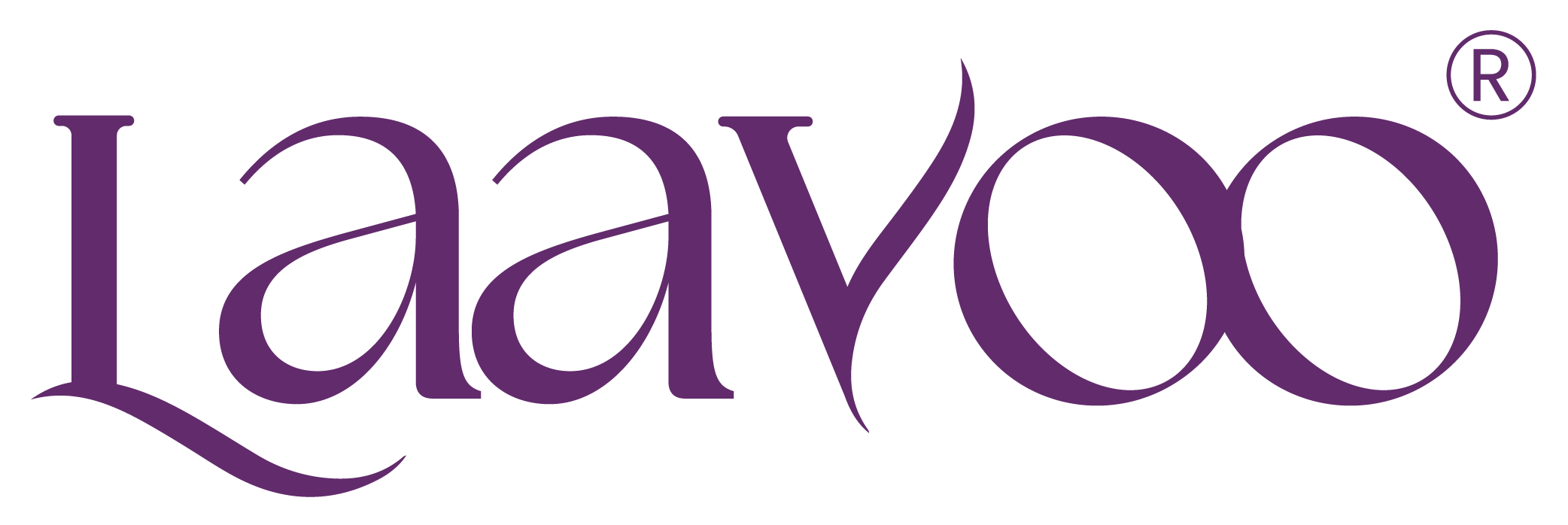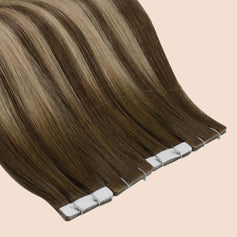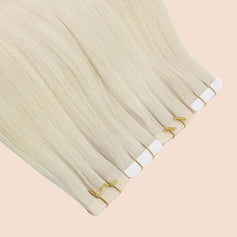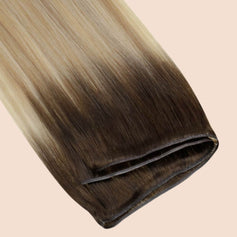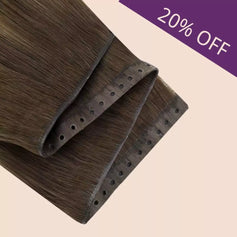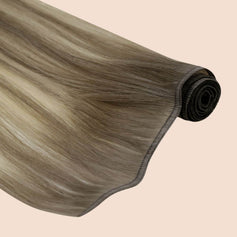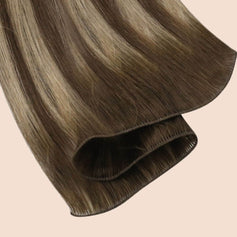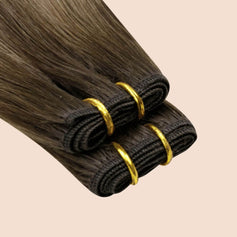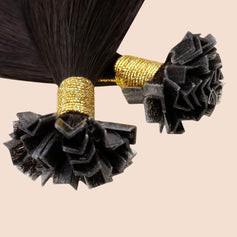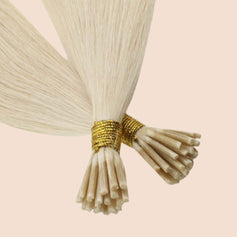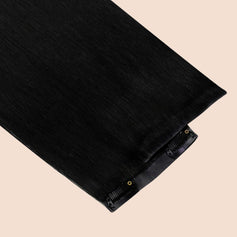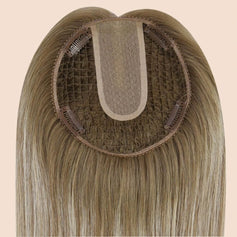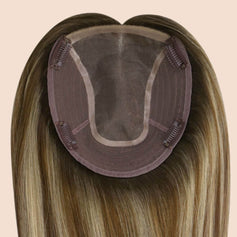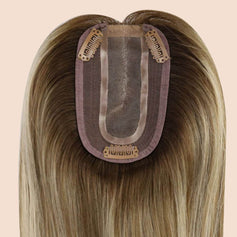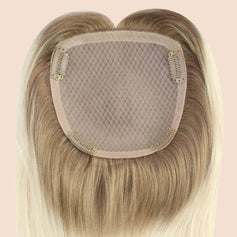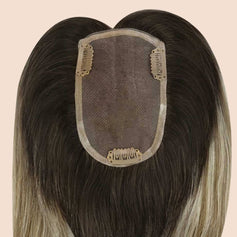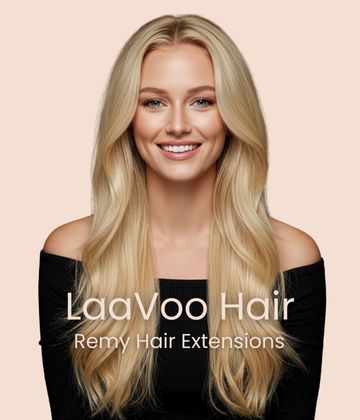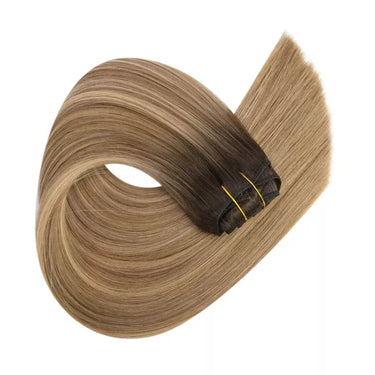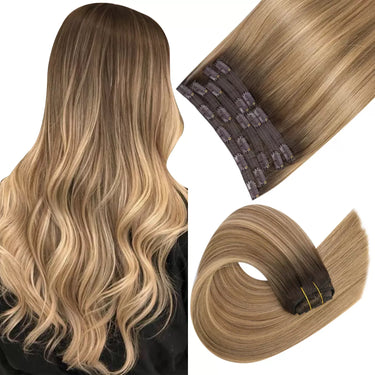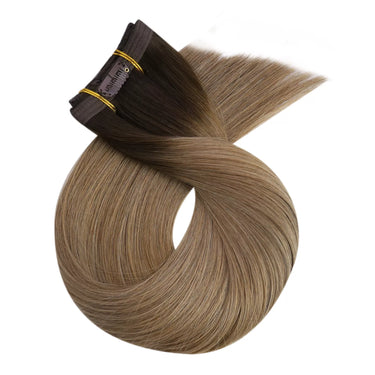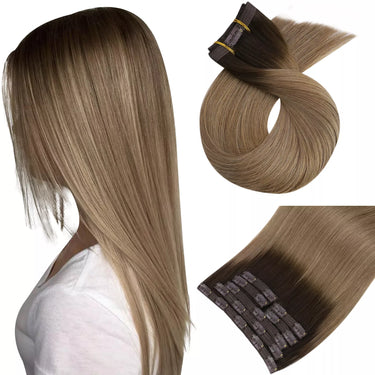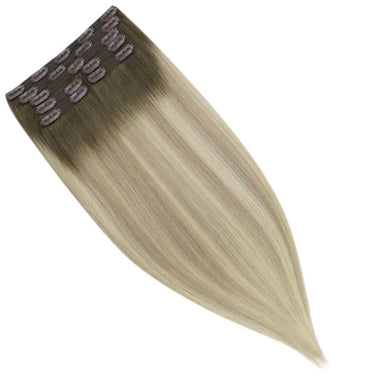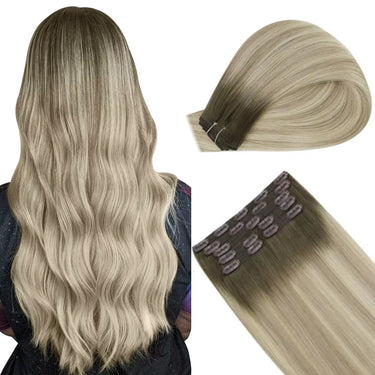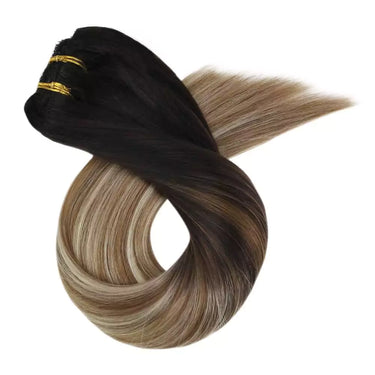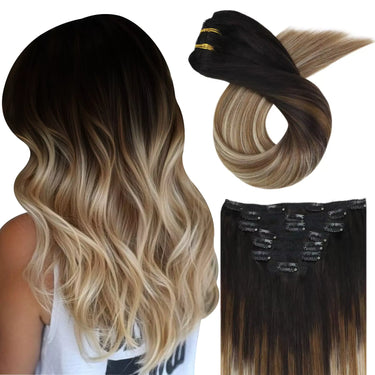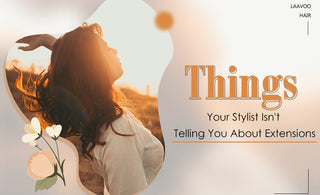
1. There are a ton of different kinds of extensions, and not all of them will work with your hair.
There are clip-ins, which pop in and out in two seconds; tape-ins, which attach to thick sections of your hair with a double-sided keratin tape; sew-ins, which are woven into a concealed braid without any glue; and pre-bonded extensions, which are bonded to small sections of hair two centimeters from your scalp with various types of adhesives, such as keratin, glue, or plant- or petroleum-based adhesives.
On top of having a ton of types to choose from, there are also artificial and natural hair extensions, different textures from different regions, and thousands of colors you can pick from as well. To make the right choice, we suggest shopping around to find the ones that work for your hair type, lifestyle, and budget — don't feel obligated to go with whatever your usual salon carries. Instead, do some research, get educated, and ask questions!
2. Customization is key.
Extensions (even the clip-in kind you can buy at your local beauty or drugstore) look WAY more believable if you have your stylist cut and color them. This way they blend into — and complement — your haircut and strand shade. If you're getting professional-grade extensions, however, your stylist should already know this tidbit, but you might want to remind them just in case.
3. Extensions need lots of TLC.
Just like your regular hair, extensions can get split ends and eventually look damaged after being styled over and over again. To protect your investment (and your real hair too!), go easy on the heat styling, always use a thermal protecting spray before hot tools, and deep-condition your hair at least once a week.
4. You don't have to go from zero to Beyonce overnight.
If you're concerned about your transformation looking obvious, we suggest asking your stylist to apply extensions gradually, starting with four or five wefts (the other name for extension pieces) and adding one or two each time you need a touch-up. That way your hair seems to get a bit longer and thicker over the course of a few months, which looks way more believable than putting it in a full set at once.
5. There will definitely be an adjustment period.
Full disclosure: It will be tough to go from styling the hair you've known how to work with since junior high to coiffing a whole new set of strands. But the gradual extension application above (point No. 5) can help you adjust to your ever-expanding mane. Just be prepared to learn how to handle your new set of strands.
6. Blowouts will be different with extensions.
When there are five to fifteen wefts of hair being taped, glued, or sewn into your own strands, the last thing your hair needs is more yanking. So when you dry your hair or hit up the blowdry bar, ask your stylist to skip the usual brush work (which can tug at your extensions and loosen them) and rough dry (where they dry your hair with their fingers) your hair instead. Then, they can style you with a curling or flat iron as they normally would.
7. Go to someone reputable to apply your glue-in, tape-in, and protein-bonded extensions.
Extensions are a serious investment and a lifestyle commitment, so set up a consultation before you commit to a certain kind. And ask around to make sure this isn't their first hair extension rodeo — you want to be sure they've applied a ton before you sit in their chair.
8. Your lifestyle will dictate placement, so speak up!
Do you wear cute shades all summer long? Always rock a chic topknot? Go to spin class with your hair in a pony every a.m.? If so, mention these details to your stylist, so that he or she doesn't apply them too close to your ears (where the arms of sunglasses sit) or too low (which is visible when your hair is pulled high up). That way you can go about your day, wearing your hair exactly how you want it without any hiccups.
9. Make it clear the the level of your extensions.
Virgin hair is the best quality of hair. But most hair doesn't have this quality, unless your human hair extensions specifically say on the packaging that they're virgin hair. There are also many hair products made from Virgin hair but are pre-dyed to make fashion colors.
10. Synthetic extensions are better left untouched by your hot tool.
If you like to wield a hot tool or two, it's best to opt for human hair extensions, since synthetic ones can only be heat-styled up to a certain temperature. If synthetic is your only option budget-wise, be sure to check the back of the packaging for its heat-styling restrictions.
11 . Extensions don't last as long as you think they will.
For Remy hair, if you're taking good care of them, tape-ins and pre-bonded extensions last up to 3 to 6 months. The kinds of extensions that last up to a year are clip-ins, halo hair and ponytail hair, since you're not wearing them every single day. Virgin hair can last 6-12 months, which is of good quality.
12. Synthetic extensions can not be washed.
Because synthetic extensions aren't natural, they can't withstand good washing, which means you can't shampoo them like you can with human hair clip-ins. They will be instantly ruined if you try to clean them in any way, shape, or form.
